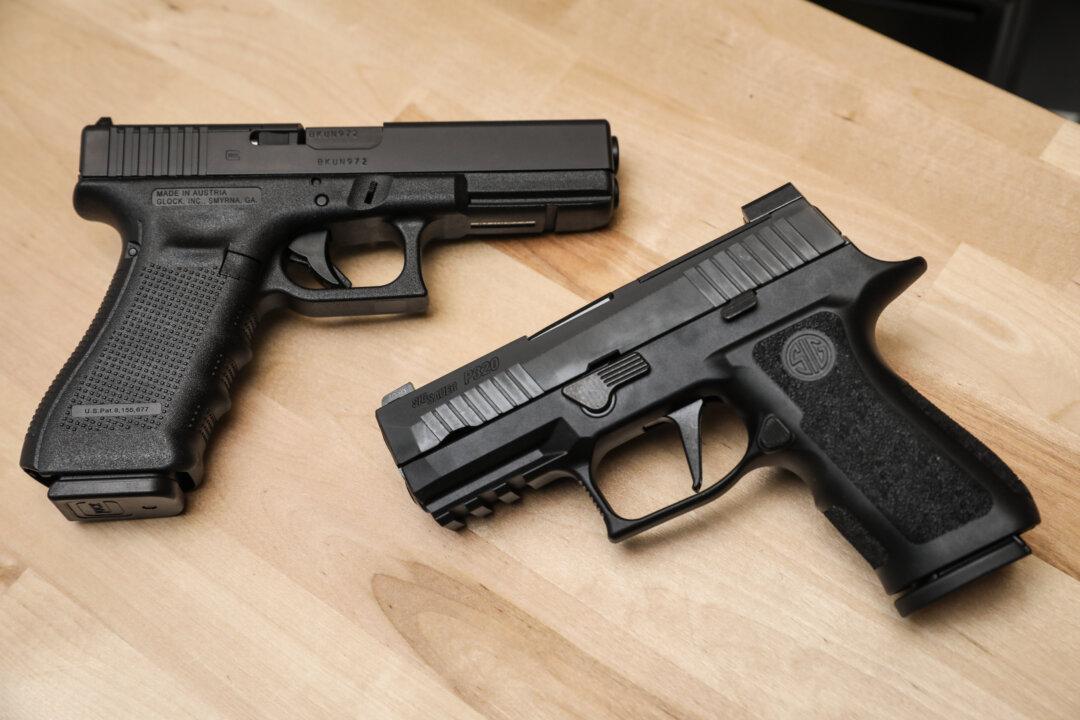The District of Columbia has agreed to pay out a $5.1 million settlement in a class action lawsuit brought by gun owners who alleged the district violated their Second Amendment rights with laws prohibiting the carrying of firearms in public.
A group of five different nonresidents filed a federal class action lawsuit (pdf) against the District of Columbia’s local government in 2015, alleging their gun rights had been violated by D.C. police officers. On Monday—more than eight years after the plaintiffs started their lawsuit—U.S. District Judge Royce C. Lamberth granted preliminary approval for a settlement agreement (pdf) that would pay out around $50,000 to six named class representative plaintiffs, another $2.2 million to cover the plaintiff’s attorney expenses, and another $2.6 million to notify and compensate other gun owners similarly impacted by D.C.’s gun laws.





